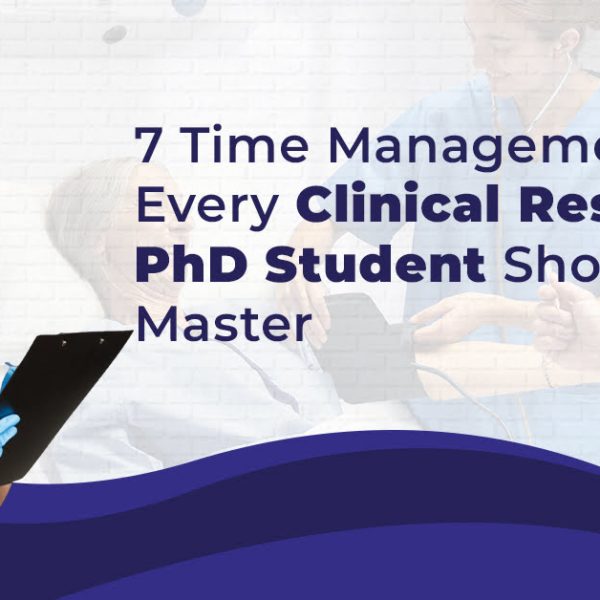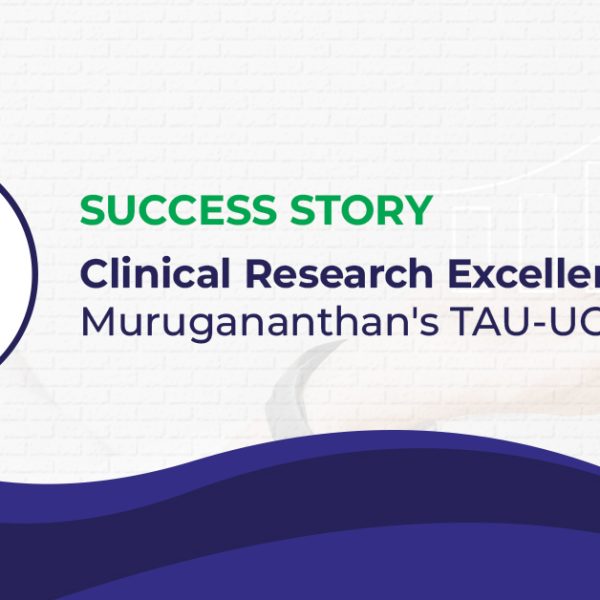Blog Summary
Introduction
Beginning a PhD program in clinical research requires a deep comprehension of the area’s complexities, making it a complicated intellectual endeavour. This introduction explores the fundamentals of a PhD programme in clinical research and highlights the significance of developing certain research abilities. As we explore the critical components that define success in this academic pursuit, it becomes evident that mastering these skills contributes to educational excellence and prepares individuals for impactful contributions in the dynamic realm of clinical research.
1. Mastering Literature Review
Mastering the art of literature review is paramount for any individual pursuing a PhD in Clinical Research. Beyond the basics, efficient utilization of online databases is a skill that will be frequented throughout the program. Aspiring researchers should become adept at navigating platforms like PubMed, Scopus, and Google Scholar to access the latest and most relevant literature.
Critical analysis techniques play a crucial role in this skill set. Evaluating the credibility and relevance of sources, identifying key themes, and synthesizing information are essential aspects of constructing a robust theoretical framework for research studies. The literature review sets the stage for formulating research questions and hypotheses, making it a cornerstone skill.
2. Proficiency in Experimental Design
At the core of any research endeavour lies the design of experiments. Crafting clear and testable hypotheses is a fundamental aspect of this skill. As individuals pursue a PhD in Clinical Research, the ability to choose suitable methodologies and plan statistical analyses becomes increasingly critical.
The selection of appropriate methodologies depends on the nature of the research—whether qualitative, quantitative, or a combination of both. This decision shapes the data collection methods and, consequently, the reliability and validity of the research findings. Proficiency in statistical analysis is crucial for drawing meaningful conclusions and ensuring the overall rigour of the study.

Proficiency in experimental design is essential for success in clinical research PhD programs, as it empowers individuals to craft clear hypotheses, select appropriate methodologies, and plan statistical analyses, thereby ensuring the reliability and validity of research findings.
3. Skills in Data Collection
Accurate and reliable data collection is the bedrock of successful clinical research. The selection of appropriate instruments, ensuring data accuracy, and navigating ethical considerations are integral components of this skill. As individuals pursuing a PhD in Clinical Research, these aspects are vital in producing research that stands up to scrutiny.
Choosing the suitable instruments involves a meticulous evaluation of their validity and reliability. Researchers should align instruments with research objectives, ensuring they provide trustworthy data. Ensuring data accuracy demands attention to detail and adherence to standardized protocols, while ethical considerations necessitate a keen awareness of participants’ rights and ethical guidelines.
4. Communicating Findings Effectively
Even groundbreaking research remains incomplete without effective communication. Crafting clear and concise research reports, developing compelling visuals, and honing presentation skills for conferences are indispensable subtopics within this skill.
The ability to craft clear research reports involves structuring information logically and ensuring the narrative flows seamlessly. Researchers should communicate their findings in a manner accessible to experts and non-experts, emphasizing the practical implications of the research.
Presentation skills for conferences are essential in disseminating research findings. Individuals pursuing a PhD in Clinical Research should be prepared to articulate their work confidently, engage with the audience effectively, and participate in meaningful discussions.
5. Emphasizing Collaboration and Networking
Clinical research is inherently collaborative, making building professional relationships, active participation in research communities, and fostering teamwork essential to success. As individuals pursue a PhD in Clinical Research, the ability to collaborate becomes a valuable asset.
Building professional relationships involves networking with colleagues, mentors, and professionals in the field. Networking opportunities arise at conferences, workshops, and collaborative research projects. Building a solid professional network opens doors for information sharing and possible teamwork on upcoming research projects.
Active participation in research communities, whether local or virtual, allows individuals to stay informed on current trends, share insights, and seek advice from peers. The collective wisdom of a research community can significantly enhance individual research endeavours.
Active participation in online PhD in clinical research programs offers invaluable networking opportunities, enabling students to build professional relationships, stay abreast of current trends, and leverage the collective wisdom of virtual research communities for enhanced academic success.
6. Adaptability and Innovation
The research landscape is dynamic, requiring researchers to navigate changes, embrace technological advancements, and foster innovations in clinical research. Adaptability and innovation are indispensable subtopics within this skill set.
Navigating changes in the research landscape involves staying informed about emerging methodologies, technologies, and trends. As individuals pursuing a PhD in Clinical Research, researchers should be proactive in updating their skills and methods to stay at the forefront of advancements in their field.

Embracing technological advancements enhances the efficiency and precision of research activities. Investigating the combination of virtual reality, artificial intelligence, and data analytics can improve the calibre of data gathering, processing, and sharing.
Don’t miss out on exploring our insightful blog on “Current Trends in Quality Assurance of Clinical Research” to gain deeper insights into ensuring the integrity and excellence of research practices in the field.
Challenges in Developing Research Skills
While developing research skills is rewarding, it is not without challenges. Overcoming common obstacles and strategies for skill enhancement are vital aspects of this subtopic. As individuals pursue a PhD in Clinical Research, acknowledging and addressing these challenges is key to success. Common obstacles in developing research skills include time constraints, resource limitations, and the complexity of research methodologies.
Researchers should approach these challenges with resilience, seeking solutions and prioritizing continuous improvement. Developing new skills requires a dedication to lifelong learning, looking for mentorship, and taking advantage of professional development opportunities. It is crucial for people pursuing a PhD in clinical research to adopt a growth attitude and acknowledge that skill improvement is a continuous process.
Conclusion
Mastering the essential research skills this comprehensive guide outlines is paramount for success in a Clinical Research PhD Program. These skills collectively shape well-rounded researchers, ranging from the meticulous art of literature review to proficiency in experimental design, data collection, effective communication, collaboration, and adaptability. Beyond academic excellence, these competencies prepare individuals for impactful contributions in the dynamic landscape of clinical research.
As aspiring PhD candidates navigate the challenges inherent in skill development, acknowledging and addressing obstacles while embracing continuous learning and a growth mindset is key. By doing so, individuals not only overcome challenges but also position themselves as adept professionals ready to innovate and lead in the evolving field of clinical research.












